Visit to get our entire library of TED Talks, transcripts, translations, personalized talk recommendations and more.
Disrupting the status quo can be scary, but sometimes it’s necessary to make the world a fairer place. Reclaiming what it means to be a troublemaker, author Luvvie Ajayi Jones shares three questions to ask yourself when tackling fear and standing up for what you believe in — and urges all of us to speak up in ways that honor ourselves and others. (This conversation, hosted by TED current affairs curator Whitney Pennington Rodgers, was part of an exclusive TED Membership event. Visit ted.com/membership to become a TED Member.)
0:00 Intro
0:36 Reclaiming the term “troublemaker”
02:28 Three questions for overcoming fear
05:35 Professional vs. regular trouble
05:46 Deciding what trouble is worth making
08:31 Know thyself
09:35 Putting action to your ideas
11:00 Take up space even when it isn’t given
The TED Talks channel features the best talks and performances from the TED Conference, where the world’s leading thinkers and doers give the talk of their lives in 18 minutes (or less). Look for talks on Technology, Entertainment and Design — plus science, business, global issues, the arts and more. You’re welcome to link to or embed these videos, forward them to others and share these ideas with people you know.
Become a TED Member:
Follow TED on Twitter:
Like TED on Facebook:
Subscribe to our channel:
TED’s videos may be used for non-commercial purposes under a Creative Commons License, Attribution–Non Commercial–No Derivatives (or the CC BY – NC – ND 4.0 International) and in accordance with our TED Talks Usage Policy (). For more information on using TED for commercial purposes (e.g. employee learning, in a film or online course), please submit a Media Request at
Transcriber:
Whitney Pennington Rodgers:
Each of us, no matter who we are,
have dreams for ourselves.
and all of us also have fears.
Luvvie Ajayi Jones has spent lots of time
thinking about the intersection
of these two things,
namely, how you can overcome your fears
to accomplish your dreams.
Here to break this all down for us
is Luvvie Ajayi Jones.
Welcome, Luvvie.
Luvvie Ajayi Jones: Hi!
WPR: Hi, Luvvie. How are you doing?
LAJ: Doing well. Doing well.
WPR: Why do you use the term
“professional troublemaker”
to describe yourself?
Why is that sort of the term
that you’ve landed on
to define what you are, who you are?
LAJ: Yeah. You know, some of us have been
called troublemakers growing up.
When you are too loud
in the class or, you know,
your mom tells you to eat vegetables
and you say no, and you’re like,
you’re a troublemaker.
I want to reclaim what that means.
I think about the late, great John Lewis,
who said we have to be ready to make
necessary trouble, good trouble,
and really was the lens of:
we are going to have to do things
that are going to disrupt
the status quo in this world.
If we’re going to do anything
of impact and of note
and make any type of positive change,
we are going to have to “make trouble.”
And making trouble is not about
being a contrarian randomly.
It’s not about being a troll.
It’s not just simply because you want
to make people uncomfortable.
It’s that, often,
when you are the person who thinks
different from everybody else in the room,
it does feel like trouble.
You know, when you are not going along
with the group, it feels like trouble.
But sometimes, it’s actually what you need
to do to not just honor yourself,
but honor the world
and honor who you want to be.
So if making trouble looks like we
actually end up being better off for it,
then we have to make trouble.
I think it’s an obligation
for us to make trouble,
the type that leaves our kids better,
that leaves the rooms
that we are in elevated,
the types that lets us
be proud of ourselves.
Now, making trouble will not
always go well, right?
Let’s keep — I’m going to say that.
It’s not that when you speak the truth,
somebody’s going to always
receive it properly.
But you go to bed knowing
that you at least tried,
as opposed to saying,
“What if I had tried?”
It’s a life of, “Oh, well,”
then “What if?”
So I think that’s why
professional troublemaking is something
that we should be proud of.
WPR: So I know everyone is dying to know:
How how do I become
a professional troublemaker?
You outlined this in your book.
You talk a little bit
about it in your talk.
But I know there are three big things
that you think you need to do
to approach this idea
of becoming a troublemaker.
Will you share a little bit
about that with us?
LAJ: Yes. So when you are in the room,
and somebody says something
that is not a great idea —
we’ve all been in meetings like that,
where a campaign idea was brought forth
or a slogan or just something,
and you’re just like, “Oof,”
but everybody else in the room
is like, “This is a great idea!
We love it! Yes, let’s do it!”
And usually you feel like
you’re standing on an island by yourself,
because you’re like, “If I’m the only
person that has a problem with it,
am I the problem?”
So then oftentimes, we’ll be quiet,
the room will dissipate,
we walk out, and we keep thinking
about that moment,
and we keep saying,
“Should I have said something?”
I don’t like the feeling of thinking,
“Should I have said something?”
Because I’ll sit on it,
and I’ll overthink it,
and I’ll think about it the day after,
and I’ll be like,
“I should have said something.”
So for those tough moments
where you want to say something
that feels like it’s contrary
to what everybody else is saying
but you know you deeply believe it,
I say ask yourself three questions.
And if the answer is yes to all three,
you say the thing.
OK, so the three questions are:
Do I mean it?
This question is important
because you’re not just talking
to hear your own voice.
Do you actually mean
what you’re about to say?
Can I defend it?
OK, if somebody challenges you
on this thing that you
are also challenging,
do you have a way to justify
and back it up?
Do you have a clear way to say,
“These are the receipts I’m coming with”?
And then: Can I say it thoughtfully?
Because how you say it does matter.
Now, it does not mean
that you should be tone-policed,
nor does it mean that everybody
will think you’re saying it thoughtfully.
But if you at least try
to run it through your own,
“Am I trying to be
as thoughtful as possible?”
it’s risk mitigation.
So you’re saying, “OK, I’m not going
to be hateful about this.
I’m not going to say this
to demean somebody.
And I’m not just saying it
to blow the room up
or make the room feel like
a rocky place to be in.”
When the answer is yes to all three —
Do I mean it? Can I defend it?
Can I say thoughtfully? —
say it, and then deal with whatever comes.
Now, again — I say risk mitigation.
I’m not saying everybody
will receive what you’re going to say
with the intention you meant, OK?
But it is a way to check yourself,
check in with yourself,
check what you’re about to say,
check your tone a little bit
so it doesn’t come out
as unthoughtful as it could.
Because there are moments
when things might be heated
and you might want to speak
really quickly.
It slows you down just a little bit
to say, all right, all right, you do
want to say this thing, it is valid,
but don’t come at this person’s neck.
So I think it’s important for me.
It’s a checkpoint that I’ve used
for years that I kind of lead with.
And most of the time it goes well.
WPR: That is part
of the tenets you outline.
This is part of the “be” part.
You have “be, say, do” —
Is that right? — for tenets.
LAJ: Yes. Be, say, do.
WPR: Be, say, do.
And Ahmed, he asks,
“How do you recognize professional trouble
rather than regular trouble?”
LAJ: I think it just really comes down to
the heart from which you’re doing it.
You know, I really do think
professional troublemaking,
what it means is to disrupt
for the greater good.
You’re not just disrupting
because you don’t like the person
that’s sitting across from you.
You’re disrupting because you know
what you’re saying or doing
is going to be better for somebody else
or somebody who looks like you
or somebody who doesn’t even
look like you, right?
It is … it’s mission-driven.
And it is sometimes brave,
because a lot of troublemaking
is going to be scary.
If it’s not scary, it’s probably
not troublemaking,
right?
If it does not give you a little
bit of, “Uhh … I’m about to do this,”
it’s probably not troublemaking.
Because if it was easy,
everybody would do it.
If something was easy to say or do,
everybody would do it,
so it wouldn’t be special.
So I think a lot of times
about troublemaking
the thing to really understand is:
it’s going to be scary.
But what we sometimes will think
is that if it’s scary,
that means I need to not do it.
That’s not true.
That’s how we end up not living
the lives that we want to live.
That’s how we end up
passing on opportunities
that are meant to transform our lives.
That’s how we end up
regretting our silence in rooms.
One of the things that I actually ask
myself whenever I’m in a room
and I feel like I need to say
something that feels tough
is, I also ask myself, “Will
my silence make me proud?
This thing that feels like trouble, if I
don’t do it, will I be proud of myself?”
Because ultimately, we are all
our own biggest critics.
Like, I could disappoint other people
and still be able to deal with it.
But when I disappoint myself,
it’s really tough.
So I’m always like,
“I’m making trouble
so I don’t disappoint myself.
I’m making trouble so my silence
is not something that will convict me.”
Because if I was there, I have
to justify what I did in any room.
And I want to be able to say,
“At least I tried.”
WPR: And to this point, Dennis asks,
“How do you pick your battles
to maintain your energy every day?
How do you decide
which trouble’s worth making?”
LAJ: Great question.
Sometimes, I just …
don’t have the energy to make
trouble on that day.
What that means is, if I am in a meeting,
and on that day, I’m wiped,
and I’m just like, “I don’t
have the energy
to even be the one that’s challenging,”
on that day, I might be quiet.
So I just need more people
to feel the obligation
to also make the good trouble,
so the one person who’s always
doing it can take a rest.
WPR: I mean, it sounds like
a big part of this
is understanding yourself, right?
Is understanding the sorts of things
you want to go after.
And we have an anonymous question
where somebody asks,
“I think being a troublemaker
also requires us
to identify what we truly want.
What’s your advice on
finding out what you want?”
LAJ: Yeah, I think it’s important to know
what your core values are
and what the thing
that you will fight for is,
which is why I started the book
with a chapter called “Know Thyself.”
That was important because we have
to be doubly clear on who we are,
what we hold dear, why we are who we are,
because it’s what’s going to inform
what we want to speak up about.
It’s what’s going to inform
what drives us to fight.
It’s what’s going to inform
the why of it all.
It’s what pushes you past the fear
to say, “I have to do this anyway.”
So if you’re not clear about who you are
and what’s important to you,
you’re going to find it hard to know,
“What am I actually
going to be standing up for?”
WPR: You’ve gone back to these tenets,
then, in answering this question,
this idea of being the troublemaker
that you want to be.
And then what you shared earlier
is the saying of the asking
the three questions.
And then there’s a third part
of this, the doing element.
Could you talk a little bit about
what that looks like?
LAJ: Yeah, you know,
you can talk a good talk,
but if you’re not doing work,
then what’s the point of the talk?
Ultimately, we have to put action
to our beliefs, to our ideas,
to our convictions.
So you can be like, yes, you know,
Black lives matter.
But if you’re a boss who hasn’t promoted
your most senior Black staff,
and somebody who just started
got promoted over them,
then the words that you said
did not matter.
So the “do” of it all is important;
it’s an exclamation point,
because first you fix
your mindset with the “be,”
then you start putting words
to it with the “say,”
and then now you actually
put action to it with the “do.”
And we cannot have
the other two without the do.
I think what ends up happening a lot
is that people feel really good
about what they said,
but they haven’t made it actually
match with their action.
So be who you say you are, you know,
whether people are watching or not.
Be who you say you are
in private and in public,
in the rooms where it’s easy
and in the rooms where it’s tough
and you face opposition.
Because a lot of us are walking
with privilege that we’re not using.
So every day you’re trying to figure out
in what ways can you use your voice,
your access, your social currency
in service of people who don’t have it
as much as you do.
WPR: So, Anushka, she asks,
“As someone who’s young
and often seen as inexperienced,
how do I gain the space to speak
and have others realize my worth?”
LAJ: You won’t gain the space to speak.
People won’t let go of their power
that they perceive.
Basically, you have to take it.
Now, that means you might
have to interrupt and say, “Hi.
I’ve been trying to speak
for the last 20 minutes.
I have a point of view
that I’d love to offer up.”
It is being — it is taking up space even
when people don’t give it to you.
And it does not mean
you’re going to be rude.
It doesn’t mean
you’re going to be arrogant.
It means your voice is necessary,
just like everybody else’s.
In the places where your voice
is not given space,
sometimes, you either have to take it,
or you walk away, knowing
that’s not the space for you.
Because if you have to constantly
fight to be heard, that’s exhausting.
People might look at you
with all types of weird projections
of what they think you do or don’t know.
Do not let it shift
what you see as your own value.
That is also why
you cannot attach your value
to how other people are treating you
or how other people
are projecting things onto you.
If you do that, you will very quickly
be told that you don’t fit into spaces.
You’ll be very, very quickly told
that you’re not worthwhile
or that your ideas are terrible,
and then you will absorb it.
And then you’ll go, like, “Oh, I guess
I won’t use my voice.”
You got to fortify yourself
and know that your voice is just
as important as anybody else’s in the room
and that you as somebody
who’s learning, who’s growing,
who is already in the room,
you have already proven yourself
to be valuable.
And whether or not
people see it is not …
it’s not your fault,
but affirm yourself
and make yourself known.
You know, take up space,
even if they’re not giving it to you,
don’t wait for their permission to speak.
Be brilliant whether or not
they want you to be.
WPR: Well, thank you so much, Luvvie,
I know we’re all going to be waiting
with bated breath
for the news around this book.
LAJ: Thank you so much for having me.
TED has been so significant in my journey.

 Science & Technology4 years ago
Science & Technology4 years ago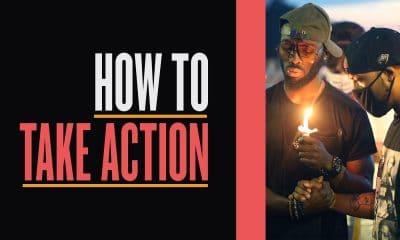
 CNET4 years ago
CNET4 years ago
 Wired6 years ago
Wired6 years ago
 People & Blogs3 years ago
People & Blogs3 years ago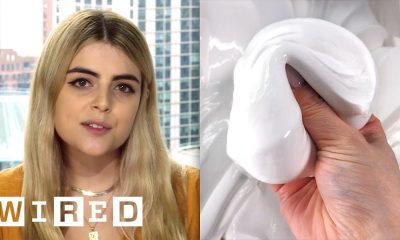
 Wired6 years ago
Wired6 years ago
 Wired6 years ago
Wired6 years ago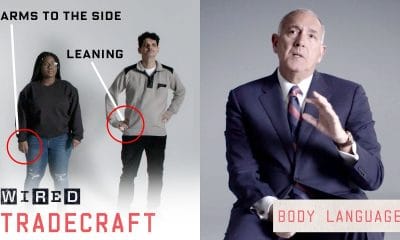
 Wired6 years ago
Wired6 years ago
 CNET5 years ago
CNET5 years ago

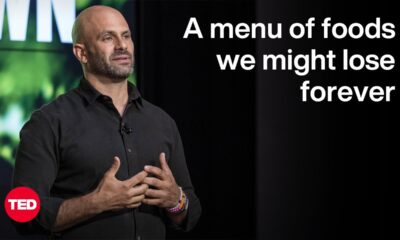



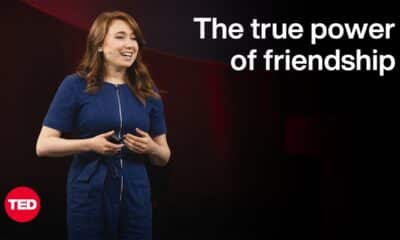

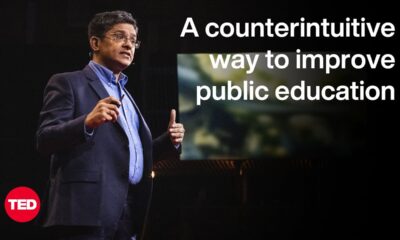

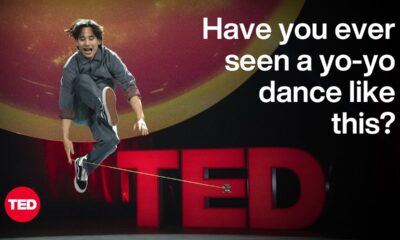

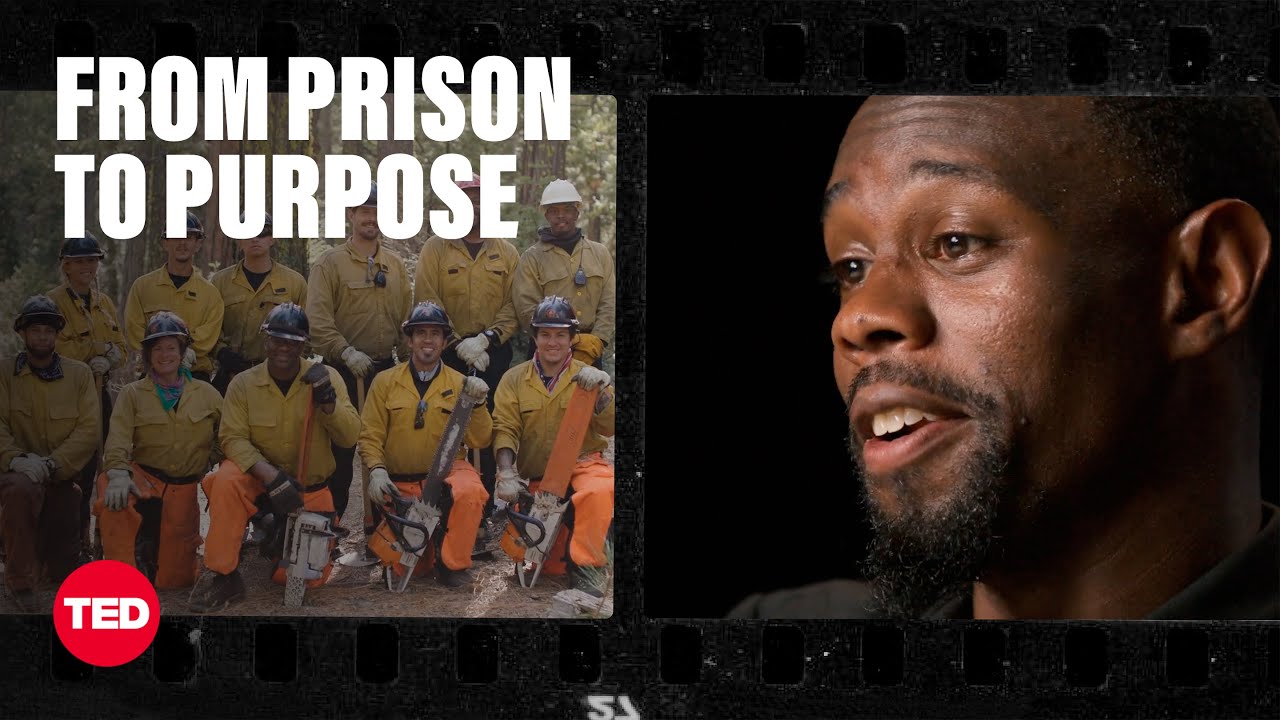
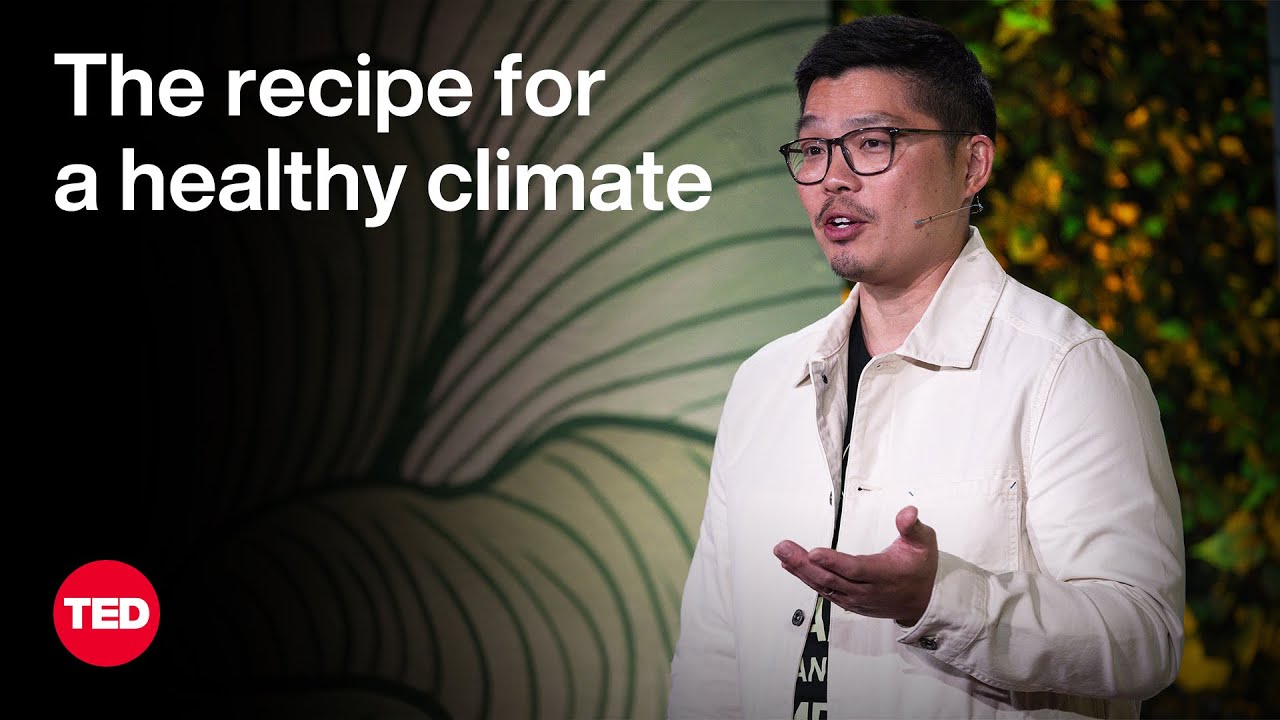
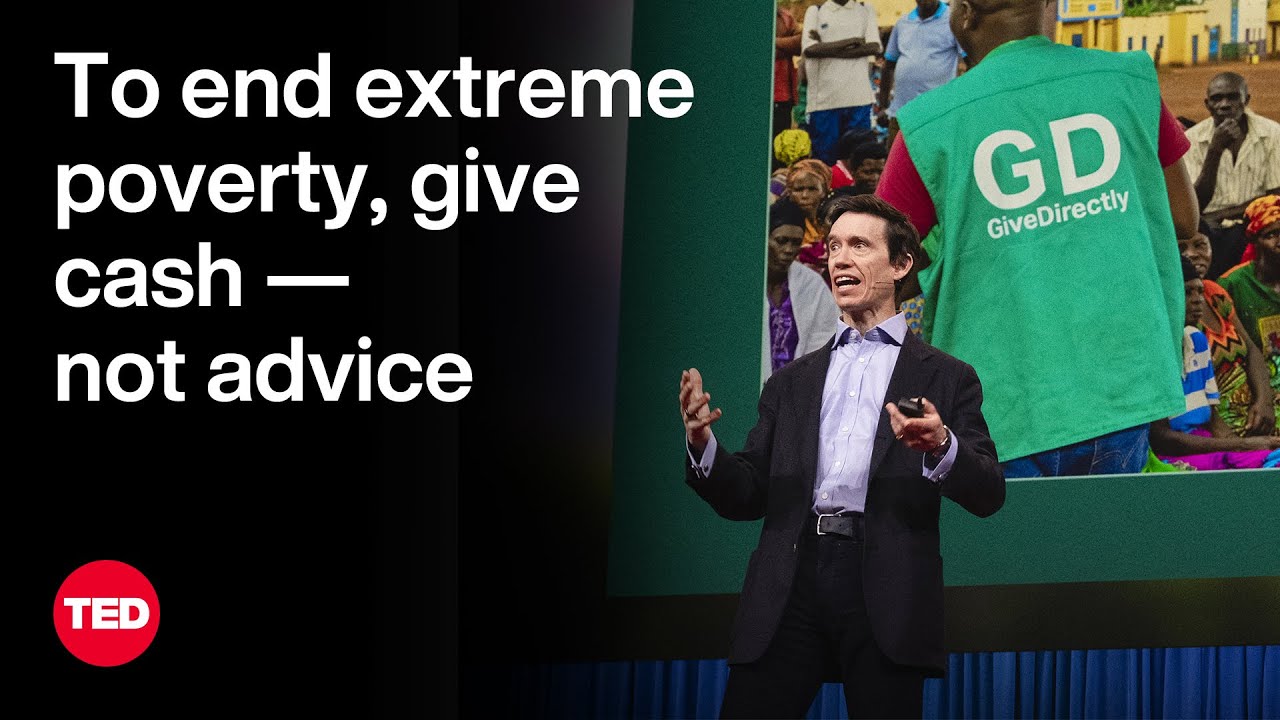




Solvv Biswas
July 6, 2021 at 7:15 pm
TEXD
Marilyn Schmidt
July 6, 2021 at 7:32 pm
I’d be considered a professional trouble maker. This was empowering and one of the best Ted discussions I’ve listened to. Amen sisters. From New Zealand 💜
Кунигунда Production
July 6, 2021 at 7:38 pm
лишняя хромосома зашла в чат
Corey Ellis
July 6, 2021 at 7:39 pm
Just join BLM!😂
GuitarZombie
July 6, 2021 at 7:39 pm
So you delete my comments
don’t disrupt the status quo …you people are a joke
unsubscribed
English IELTS
July 6, 2021 at 7:42 pm
👍👍👍👍👍
Francis Orih
July 6, 2021 at 7:52 pm
Very very good and empowering !!
GuitarZombie
July 6, 2021 at 8:01 pm
Don’t be a trouble maker
Gary Boyle
July 6, 2021 at 10:33 pm
Yeah because that has worked so well for the general public. Every rights you have were not given freely but earned through people that stood up against the rich band powerful.
ASLEEKBLACKFEATHER
July 6, 2021 at 8:27 pm
I’m not listening to someone wearing a fedora talking about being a troublemaker
Sarah Roman
July 6, 2021 at 9:40 pm
BE THE CHANGE YOU WISH TO SEE IN THE WORLD!!! TOO MANY PEOPLE DONT STAND FOR RIGHT AND WRONG!! AFRAID OF CONFRONTATION; WHICH ONLY PROMOTES AND ALLOWS THOSE THINGS TO CONTINUE. SHES SPOT ON 💯👍 YOU GO GIRL!! PREACHHH! she must be a Taurus ! Lol 💪
ATLHooligan
July 6, 2021 at 9:50 pm
You look like a burn victim
jerin george
July 6, 2021 at 11:22 pm
I’ve already mastered this profession.
Nemesis Brzeczyszczykiewicz
July 7, 2021 at 4:19 am
If we will be professional troublemakers then we won’t be obedient slaves and therefore end up incarcerated.
Donald Hobson
July 8, 2021 at 8:46 pm
Nation states are kind of stupid. Make the kind of trouble they can’t easily understand or stop. See bitcoin.
Anna Mae Gold
July 7, 2021 at 3:58 pm
💪🏽🙏🏽
Hammy K
July 8, 2021 at 3:07 am
Luvvie, you are on point!
Hammy K
July 8, 2021 at 3:18 am
Just do not understand how to get our point across in meetings with a such a controlling manager. Pointers are definitely recommended.
Jimmy B
July 8, 2021 at 6:14 am
Be equally as assertive.
Ronald Dan Caliva
July 8, 2021 at 6:16 am
Just keep on dreaming whatever the situation is
maxerd
July 8, 2021 at 7:30 am
to make some patriot act you gotta break some towers.
Ineptias Bais
July 8, 2021 at 2:43 pm
Same crap rephrased rl original
Donald Hobson
July 8, 2021 at 4:42 pm
“overcoming your fears”? Suppose I fear nuclear war, or a new pandemic even worse than covid. How do I overcome those fears?
Alejandro Vasquez
July 8, 2021 at 5:35 pm
Why promote black dude if he doesn’t do a great job? Just because BlackLivesMatter he deserves a promotion?
🦬💩
Donald Hobson
July 8, 2021 at 8:44 pm
So if hypothetically there was a lab you thought was about to leak a pandemic, and you set fire to the lab, killing a few researchers and a lot of bats but stopping the pandemic. Is that the kind of trouble you are advocating?
Donald Hobson
July 8, 2021 at 9:17 pm
Be a professional trouble maker.
Be serious about it. Don’t just wuss around telling stupid people that their ideas are stupid.
Steal a nuclear submarine, pimp it up and leave it on top of a skyscraper without the slightest clue of how it got there. Genetically engineer a virus that makes people unable to lie, and infect everyone in the government with it. Put a high speed robot arm in a tunnel, programmed to weld shut the door of every car that drives past. Text a million random phone numbers with a message telling people that their partner is cheating on them. Hack a Mars rover and make it write obscenities. Fake flying saucers landing on the whitehouse lawn.
Make sure people have no idea what your doing, or why your doing it. Have them questioning their own sanity, not just yours. Sow chaos and confusion on a massive scale. If you could turn off the sun for 5 minutes, you would. (You have a plan for that one, it involves robot factories on the far side of the moon making giant sunshades. )
(somewhat inspired by XKCD black hat guy)
Bad Xerge
July 9, 2021 at 12:21 am
Speak when you have something to say, not just to draw attention to yourself, if you make a tantrum around adults they won’t want you there, because you are lowering the discussion level, if you don’t have anything smart to say, stay quiet and come back when you do. Much of the problem with american politics is that of morons yelling when they have nothing to say but want attention, and this goes for both sides, that is the reason no one else cares about american politics.
Paluxy L.
July 10, 2021 at 4:39 am
Does that mean , that it’s ok to have a different opinon and say it loud even if others don’t like it ???
What about if someone becomes a professional troublemaker against diversity or BLM ?
Anne Kedi Siade
July 10, 2021 at 5:53 pm
This was a great conversation. Be you and be able to stand for it, that’s what I catch